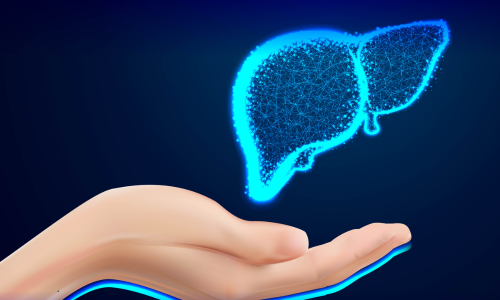Can liver regenerate itself? This is a common question among patients concerned about liver health. The liver is one of the few organs in the human body capable of repairing and regrowing damaged tissue. Its remarkable regenerative ability allows it to recover from mild injuries, infections, or damage caused by diet, lifestyle, or certain diseases. However, this capacity has limits, especially in chronic or repeated injury. Understanding how liver regeneration works, what factors affect recovery, and steps patients can take to support their liver is essential for long-term wellness.
The liver is responsible for vital functions such as detoxification, metabolism, and bile production. Its health directly impacts energy levels, digestion, and the body’s ability to fight infections. Protecting and supporting the liver is therefore a cornerstone of overall health.
How the Liver Regenerates
The liver’s regenerative capacity is unique among human organs. Even when a significant portion is damaged or surgically removed, the remaining healthy tissue can grow to restore full function.
Key aspects of liver regeneration include:
-
Cellular multiplication: Hepatocytes, the liver’s main functional cells, divide to replace damaged tissue.
-
Compensatory growth: Surviving cells increase their activity to maintain liver performance.
-
Regeneration timeline: Minor injuries can begin to repair within days. Complete recovery depends on the extent of damage and overall health.
-
Limits of regeneration: Chronic injury, cirrhosis, or repeated insults can reduce the liver’s ability to heal fully.
For example, studies have shown that after surgical removal of up to 70% of the liver (partial hepatectomy), healthy liver tissue can regrow to near its original size within 6–8 weeks in healthy adults. However, repeated damage from alcohol, fatty liver, or viral infections can overwhelm this capacity.
Factors That Affect Liver Regeneration
Several factors influence the liver’s ability to heal and regenerate:
1. Diet and Nutrition
A nutrient-rich diet supports hepatocyte repair. Key nutrients include:
-
Proteins: Essential for cell repair and regeneration.
-
Antioxidants: Found in fruits and vegetables, they protect liver cells from oxidative damage.
-
Vitamins and minerals: Vitamins A, D, E, K, and minerals like zinc support enzymatic liver functions.
Diets high in sugar, refined carbs, trans fats, and processed foods can slow regeneration and increase fat accumulation, contributing to fatty liver disease.
2. Alcohol Consumption
Chronic alcohol intake is one of the most common causes of liver damage. Alcohol metabolizes into toxins that kill liver cells faster than they can regenerate. Abstaining from alcohol improves the liver’s ability to recover, particularly in early-stage alcohol-induced liver disease.
3. Underlying Liver Conditions
The presence of liver disease affects regeneration:
-
Fatty liver disease (NAFLD/NASH): Early stages are reversible with lifestyle changes, but advanced stages reduce regenerative capacity.
-
Hepatitis B and C: Viral infections can cause chronic inflammation, scarring, and impaired regeneration.
-
Cirrhosis: Scarring limits hepatocyte proliferation, making regeneration difficult or impossible.
4. Age and Overall Health
Younger, healthier individuals regenerate liver tissue more efficiently than older adults. Comorbidities like diabetes, obesity, or metabolic syndrome slow recovery and increase risk of long-term damage.
5. Medications and Environmental Toxins
Certain medications, supplements, and chemical exposures can hinder liver regeneration. Patients should consult hepatologists before starting new drugs to avoid hepatotoxicity.
Can Chronic Liver Damage Be Reversed?
Liver regeneration works best in acute or mild injury scenarios. Chronic damage may be partially reversible depending on the disease stage.
-
Fatty Liver Disease: Lifestyle interventions like exercise, weight management, and a healthy diet can reverse fat accumulation in early stages.
-
Alcoholic Liver Disease: Stopping alcohol and receiving medical supervision can allow partial regeneration if scarring is minimal.
-
Cirrhosis: Advanced scarring significantly limits regeneration. Liver transplantation may become necessary in severe cases.
Early intervention, routine checkups, and medical guidance are critical in reversing damage and supporting regeneration.
Warning Signs That Indicate Liver Stress
Because liver damage often develops silently, recognizing early signs is important:
-
Persistent fatigue and weakness
-
Yellowing of skin or eyes (jaundice)
-
Abdominal swelling or leg edema
-
Dark urine or pale stools
-
Loss of appetite, nausea, or unexplained weight loss
Consulting a hepatologist promptly can prevent progression and improve treatment outcomes.
Lifestyle Practices to Support Liver Regeneration
Even with natural regenerative capacity, lifestyle plays a critical role in recovery:
-
Balanced Nutrition: Emphasize leafy greens, vegetables, lean proteins, whole grains, and healthy fats.
-
Hydration: Adequate water intake supports detoxification.
-
Physical Activity: Regular exercise reduces liver fat and enhances metabolic health.
-
Avoid Alcohol and Toxins: Limit alcohol consumption, avoid unnecessary medications, and minimize chemical exposures.
-
Vaccination: Hepatitis A and B vaccines protect against viral infections that can hinder regeneration.
-
Routine Health Checks: Liver function tests (LFTs) monitor enzyme levels, helping detect early signs of damage.
Additional supportive practices include maintaining a healthy weight, managing diabetes, and avoiding high-sugar diets that contribute to fat accumulation.
Advanced Diagnostics and Monitoring
Modern hepatology provides multiple tools to assess liver health:
-
Blood Tests: Measure liver enzymes, bilirubin, and proteins to gauge function.
-
Imaging Studies: Ultrasound, CT, and MRI can detect fat accumulation, fibrosis, or structural changes.
-
Liver Biopsy: In select cases, provides a detailed view of tissue health.
-
Non-Invasive Fibrosis Testing: Advanced elastography measures scarring without surgery.
These diagnostics help physicians monitor regeneration, identify early problems, and recommend individualized treatment plans.
How Regeneration Differs Across Liver Conditions
-
Acute Hepatitis: Rapid healing is possible, usually within weeks.
-
Chronic Hepatitis: Ongoing inflammation slows regeneration; antiviral therapy can help.
-
Fatty Liver Disease: Early intervention can reverse damage; late stages may require medical therapy.
-
Cirrhosis: Regeneration is severely limited; supportive care and transplantation may be required.
Understanding the stage of liver disease helps patients set realistic expectations and follow effective care plans.
When to See a Hepatologist
Patients should consult a specialist if:
-
Symptoms like jaundice, swelling, or fatigue persist
-
Liver function tests are abnormal
-
Risk factors exist, including obesity, diabetes, viral hepatitis, or alcohol use
-
New medications or supplements may affect the liver
Specialists can guide lifestyle changes, monitor regeneration, and design personalized treatment strategies.
Conclusion
The liver’s ability to regenerate is extraordinary but not unlimited. Protecting liver health through diet, lifestyle, early intervention, and medical guidance is critical. Patients with liver disease should work closely with hepatologists to understand damage extent, monitor regeneration, and follow recovery strategies.
Even small, consistent lifestyle changes—like balanced nutrition, exercise, and avoiding toxins—can significantly support liver repair and overall health.
Concerned about liver health? Schedule a consultation with a hepatology specialist to assess liver function, monitor regeneration, and receive a personalized care plan. Early intervention improves recovery and long-term outcomes.
FAQ – Can Liver Regenerate Itself?
1. How long does liver regeneration take?
Mild injuries may start healing within days. Chronic damage can take months and may not fully recover.
2. Can fatty liver disease be reversed?
Early-stage fatty liver can often be reversed with diet, exercise, and lifestyle modifications.
3. Does alcohol prevent liver regeneration?
Chronic alcohol use slows or halts regeneration. Abstinence improves healing.
4. Can hepatitis-damaged liver regenerate?
Mild hepatitis allows regeneration, but repeated or severe infection can cause permanent scarring.
5. Which foods support liver repair?
Leafy greens, fruits, lean proteins, and antioxidant-rich foods support regeneration.
6. Is liver transplant required if regeneration fails?
Advanced cirrhosis or irreversible damage may require transplantation.
7. Can older adults’ livers regenerate effectively?
Yes, but age-related decline and comorbidities may slow regeneration compared to younger adults.
8. Can lifestyle changes improve regeneration?
Yes, diet, exercise, avoiding alcohol, and routine monitoring significantly support liver repair.
9. Are supplements safe for liver health?
Some supplements help, but others can be harmful. Always consult a hepatologist.
10. Can liver regeneration prevent long-term disease?
Early detection and support enhance regeneration and may prevent progression to cirrhosis or liver failure.

